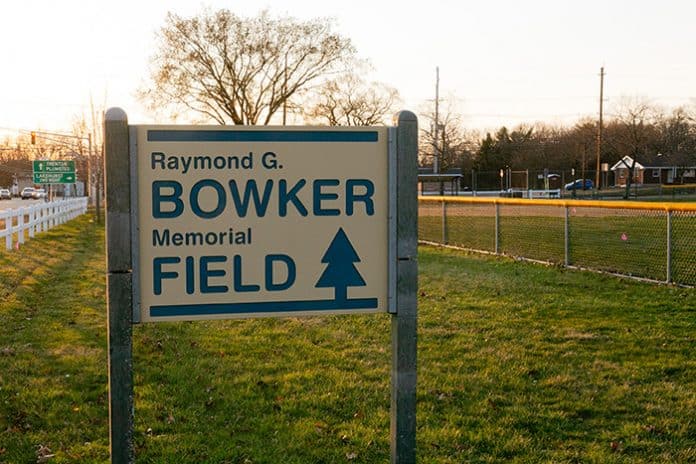
And he grew up in a tenement housing project in Yonkers. HUNT: He came from a poor background, the son of Ukrainian immigrants. MITCHELL: (Singing) To try when your arms are too weary. HUNT: The song talks a lot about hardship and overcoming it, and that's kind of what I think of when I think of my grandpa as well. MITCHELL: (Singing) To right the unrightable wrong. And he would stand up like it was - like the national anthem. And he would either like to start it with that or cap it with that. HUNT: Sunday afternoon, a lot of the times he would play a whole string of Broadway show tunes. (SOUNDBITE OF SONG, "THE IMPOSSIBLE DREAM (THE QUEST)")īRIAN STOKES MITCHELL: (Singing) To dream the impossible dream, to fight the unbeatable foe. Here's Dan Hunt talking about his grandfather, Joseph Karszen.ĭAN HUNT: The song that reminds me of my grandfather is "The Impossible Dream" from the Broadway play the "Man Of La Mancha." We're calling our tribute Songs of Remembrance. of COVID-19, and NPR is remembering some of those whose lives were lost by listening to the music they loved and hearing their stories. Woodcock, George (ed.), Malcolm Lowry: The Man And His Work (Vancouver: University of British Columbia Press, 1971).More than 500,000 people have now died in the U.S. Waugh, Auberon, ‘Auberon Waugh on New Novels’, Spectator, 227 (4 September 1971), pp. Wain, John, ‘Another Room In Hell’, The Atlantic, 222 (August 1968). Raine, Kathleen, The Land Unknown (London: Hamish Hamilton, 1975). Also included in Lowry 1975, and included in an edited version in Bowker, 1985. Noxon, Gerald, ‘Malcolm Lowry: 1930’, Prairie Schooner, winter 1963/64. Nadel, Ira Bruce, Biography: Fiction, Fact And Form (London: Macmillan, 1984). Muggeridge, Malcolm, ‘Books’, Esquire, 81, no. Lowry, Margerie Bonner (ed.), Malcolm Lowry: Psalms And Songs (New York: New American Library, 1975). Lowry, Malcolm, October Ferry To Gabriola (Harmondsworth: Penguin, 1979). Lowry, Malcolm, Hear Us O Lord From Heaven Thy Dwelling Place (Harmondsworth: Penguin, 1969). Lowry, Malcolm, Dark As The Grave Wherein My Friend Is Laid (Harmondsworth: Penguin, 1972). Lorenz, Clarissa, ‘Call It Misadventure’, The Atlantic Monthly, June 1970.Īlso in Lowry, Margerie (1975) and, in edited form, in Bowker (1985).

Knickerbocker, Conrad, ‘Swinging The Paradise Street Blues’, Paris Review, 38 (summer 1966), pp. Gasset, Ortega y, History as a System (Norton, NY: 1961). Also translated by Suzanne Kim in Lowry, Margerie Bonner (1975) and in edited form in Bowker (1985). 86–8.įoucault, Michel, Language, Counter-Memory, Practice (Oxford: Basil Blackwell, 1977).įrancillon, Clarisse, ‘Malcolm Lowry, Mon Ami’, Les Letres Nouvelles, November 1957.

100–5.Ĭunningham, Valentine, British Writers Of The Thirties (Oxford: Oxford University Press, 1988).ĭay, Douglas, Malcolm Lowry: A Biography (Oxford: OUP, 1974).įarrell, J. C., Malcolm Lowry: His Art And Early Life (Cambridge: Cambridge University Press, 1974).īreit, Harvey and Bonner Lowry, Margerie, Selected Letters Of Malcolm Lowry (Harmondsworth: Penguin, 1985).īrooke-Rose, Christine, ‘Mescalusions’, London Magazine, 7, no. Allen, 1963).īarnes, Julian, Flaubert’s Parrot (London: Jonathan Cape, 1984).īarthes, Roland, Image-Music-Text (London: Collins Fontana, 1977).īowker, Gordon, Malcolm Lowry Remembered (London: Ariel Books, 1985.īowker, Gordon, Malcolm Lowry: Under The Volcano (London: Macmillan Casebook Series, 1987).īradbrook, M. Also included in BBC 2 Television documentary, Rough Passage, 1967.Īiken, Conrad, Ushant (London: W. This process is experimental and the keywords may be updated as the learning algorithm improves.Īiken, Conrad, interview given to George Robertson for his CBC Television documentary, Remembrance of Lowry 1964.

These keywords were added by machine and not by the authors.

And if Lowry was never at the centre of the revolutionary maelstrom, he was certainly swinging somewhat haphazardly around its fringes (Cunningham, 1988). The political climate which affected many of Lowry’s contemporaries, also affected Lowry to a greater or lesser degree. This movement into the margins took a number of forms, like ‘roughing it’ among the workers, becoming involved in radical left-wing politics, travelling to remote places, being concerned about frontiers, changing names, and rejecting the prevailing literary aesthetic in favour of writing ‘proletarian’ fiction. It was not uncommon for British writers in the 1930s to express a sense of dislocation from their roots and to experience, apparently, some form of identity crisis as a result.


 0 kommentar(er)
0 kommentar(er)
